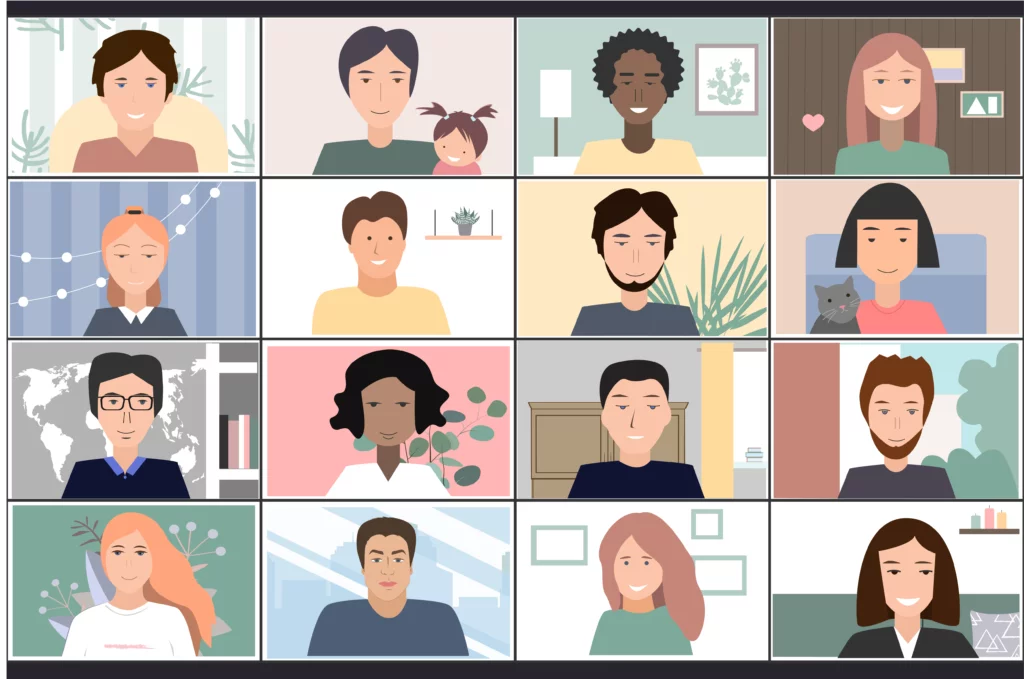Learn how and why academic advising can unlock the power of data-led decision making to prompt and prioritise timely relevant outreach to students who need help.
Introduction to Evidence based Academic Advising and Personal Tutoring
Personal Tutoring and Academic Advising are at the heart of student success in higher education. They offer students guidance, support, feedback, and motivation to achieve their academic objectives. They also help them to overcome personal and academic challenges. But not all tutoring and advising programs are as effective.
Tutors and Advisors should use evidence-based practices that informed by data and research. This will ensure the best possible outcomes for students. With real-time insights available, personal tutors can deliver effective interventions for students at-risk. In turn, this will improve institution retention and completion rates. In addition, they can deliver more personalised experiences and support for all students. Real-time insights can help improve a student’s grades, sense of belonging and engagement with their studies.
This guide explains why evidence-based tutoring and advising are important for student success. Early alert software helps embed them effectively. We will also share some best practices for using student success early alert software on campus, and some examples of successful cases from different institutions.
This 360 degree view of a student’s needs is critical to the effectiveness of today’s personal tutor.
Using Student Success Early Alert Software Platforms
Student success early alert software is a powerful tool for evidence-based personal tutoring and advising.
This software helps tutors and advisors track students’ progress. It also identifies students who may fall behind or drop out. They can intervene in a timely and personalized manner. By using student success early alert software, tutors and advisors can:
- Increase student retention and completion rates
- Improve student engagement and satisfaction
- Enhance student learning and performance
- Foster student self-efficacy and resilience
- Strengthen student-tutor/advisor relationships
Why Evidence-Driven Personal Tutoring and Academic Advising are Important
Personal tutoring and academic advising have a significant impact on student success.
According to a study by Bettinger and Baker (2014), students who received tutoring or advising had better grades, retention rates, graduation rates, and earnings than students who did not.
Tutoring and advising had a bigger impact on students from disadvantaged backgrounds. This includes low-income, first-generation, and underrepresented minority students.
However, not all tutoring and advising programs are equally effective. Some programs may be too generic, too passive, too infrequent, or too impersonal to meet the diverse needs of students.
To be effective, tutors and advisors should use evidence-based methods that consider each student’s needs for tutoring and advising. These practices include:
• Setting clear and realistic expectations for students
• Providing frequent and constructive feedback to students
• Establishing rapport and trust with students
• Encouraging students to reflect on their learning strategies and outcomes
• Helping students develop academic skills and study habits
• Motivating students to persist and overcome obstacles
• Referring students to appropriate resources and support services
Tutors and advisors must have reliable and relevant data to implement these practices effectively.
Tutors and advisors study information about students to understand their backgrounds, interests, abilities, progress, performance, engagement, satisfaction, and challenges.
Tutors and advisors can use data to evaluate their interventions and make adjustments.
Tutors and advisors can use data to talk to faculty, staff, parents, and employers about students’ needs and achievements.
Early interventions with struggling students are the keys that unlock student retention and progression.
Successful Outreach is often just down to timing. Students can reach out from their familiar SEAtS mobile app and ask for personalised help.
How Student Success Early Alert Software Can Help
- Early alert software helps collect, analyze, and display data about students’ academics, behavior, and engagement, and satisfaction.
- The software uses various sources of data, such as grades, attendance records, assignments, quizzes, tests, surveys, feedback forms, or social media posts.
- The software then uses algorithms or artificial intelligence to identify patterns, trends, anomalies, or risks in the data.
- The software then alerts tutors or advisors about any issues or opportunities that may affect their students’ success.
- The software gives suggestions for tutors or advisors to address issues or opportunities.
By using student success early alert software, tutors or advisors can:
- Track their students’ progress in real time
- Identify their students’ strengths, weaknesses, goals, preferences, and challenges
- Detect any signs of academic difficulty, disengagement, dissatisfaction, or dropout
- Intervene early and effectively with their students
- Provide personalized guidance, support, feedback, and motivation to their students
- Track the impact of their interventions on their students’ outcomes.
- Collaborate with other stakeholders to support their students
Best Practices for Using Student Success Early Alert Software on Campus
Tutors and advisors on campus should follow best practices to best use student success early alert software.
These include:
- Selecting software that aligns with the institution’s goals, culture, resources, and systems.
- Involving all relevant stakeholders in the selection, implementation, and evaluation of the software
- Providing adequate training, support, and incentives for tutors or advisors to use the software
- Creating defined roles, responsibilities, and expectations for tutors or advisors using the software.
- Integrating with current tools or platforms used by tutors or advisors.
- Ensuring the privacy, security, and ethical use of the data collected by the software
- Soliciting feedback from tutors, advisors, and students about the software and its features
- Reviewing and updating the software regularly to ensure its relevance and accuracy
Examples of Successful Cases from SEAtS Software
SEAtS Software is used by many universities, colleges, and schools to enhance personal tutoring and academic advising for students. Roehampton University London, Solent University Southampton, and Kingston University London have successfully implemented the system.
Since using the software, customers report double digit improvement in engagement and attendance. As well as up to 14% increases in fresher year retention rates on certain courses.
SEAtS is a platform that provides information and alerts about student engagement, attendance, and background data. Many teams, like Personal Tutoring and Student advising, use these insights. These tools are also used to help other teams including
- Widening Participation
- Diversity, Equality and Inclusion
- Student Retention and Progression
- Academic Compliance
- Visa Compliance
- Financial Aid
- Professional Accreditation Assurance.
Different departments on campus use various tools on the SEAtS Platform. These tools help them gain different insights from the same data. The insights are then used to create better timetables, reduce energy costs, and operate a safe, sustainable, and efficient campus.
How the SEAtS System works
- The software gathers information from different sources like student records, course systems, surveys, quizzes, smart campus networks, grades, attendance, participation, or feedback, student records, course schedules, or tutor reports.
- The software then creates reports and dashboards for tutors or advisors based on the data.
- The software then generates alerts and recommendations for tutors or advisors based on the data.
- The software lets tutors or advisors schedule appointments, send messages, create notes, or assign tasks to students.
- They can also communicate with students, create action plans, or refer them to other resources or services.
Conclusion
In higher and further education, students need evidence-based tutoring and advising to succeed.
They can help students achieve their academic goals and overcome challenges.
To use them well, tutors and advisors need accurate info about their students.
Student success early alert software give tutors and advisors these actionable insights. As well as alerts and recommendations for actions.
Tutors and advisors can then monitor, support, and motivate their students more effectively.
In addition, with the right early alert platform, colleagues can collaborate to create a positive learning environment for students.
They can also help students achieve their best outcomes and have a great experience on campus.
There you have it! A full break-down of the most common data driven approaches and best practice to academic advising and perosnal tutoring . Like to know more? Check out our blog on the importance of student attendance tracking here.









